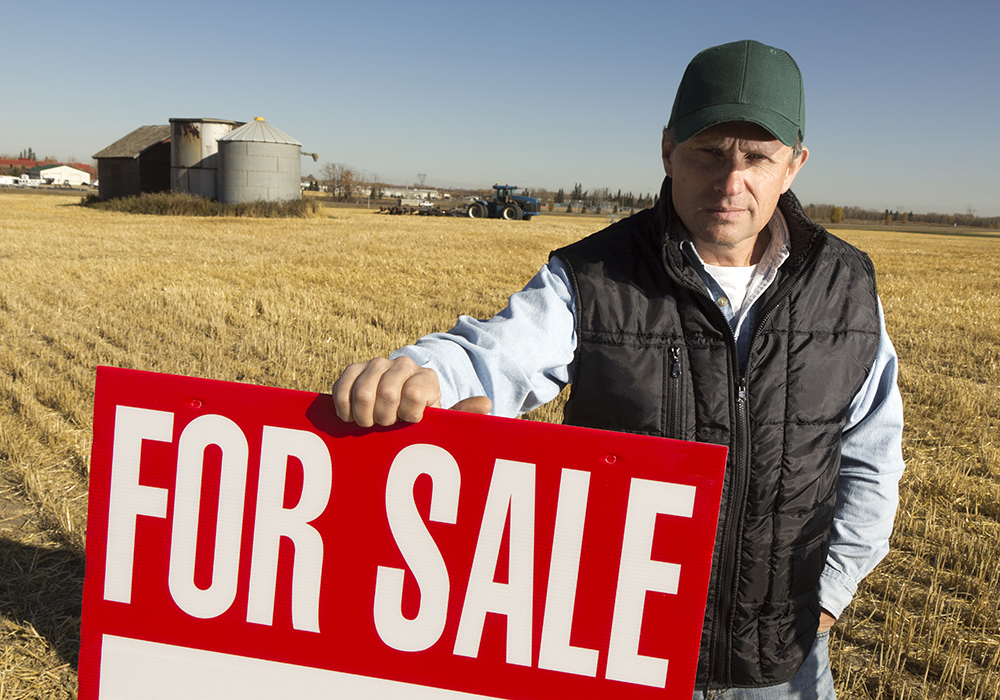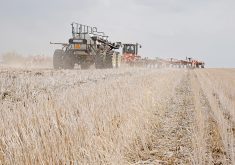The Goods and Services Tax has many nuances that can be confusing. Whether a transaction is part of your farm’s day-to-day operations, or you are selling a quarter section of land, GST is almost always inevitable. So, what could that mean for you?
While small suppliers are not required to register for GST, any supplier whose taxable supplies (sales that are either taxable or zero-rated) exceed $30,000 in any calendar quarter, or $30,000 over four consecutive calendar quarters is no longer considered a small supplier and is required to register for GST. This applies to corporations, partnerships and sole proprietors.
Read Also

Budget seen as fairly solid, but worrying cracks appear
The reaction from the agriculture industry to prime minister Mark Carney’s first budget handed down November 4th has been largely positive.
Once you have determined if registration is required, you can register either via the Canada Revenue Agency website, mail or by telephone. Alternatively, your accountant will likely be able to take care of this for you.
When considering your farm’s GST implications , it’s important to understand the distinction between taxable, zero-rated, and exempt supplies to ensure you collect and claim the correct amounts.
Taxable supplies are subject to GST at the federal rate of five percent. This means that five percent of the sale price of supplies must be charged to the customer and collected by the supplier. However, as a producer of taxable supplies, you are also able to claim any GST paid on purchases used to produce those supplies. These are known as input tax credits (ITCs).
Zero-rated supplies are subject to GST at zero percent. This means that GST is charged on sales, but at zero percent. However, producers of zero-rated supplies can still claim ITCs on all input costs related to producing those supplies.
Exempt supplies are not subject to GST. This means that GST is neither charged nor ITCs claimed on purchases used to produce products or provide services that are classified as GST-exempt supplies. For the most part, farming businesses are generally not involved in the making of GST-exempt supplies.
As mentioned before, there are several rules in determining what is taxable under the GST regime. But to every rule there is an exception. Some common examples of taxable supplies for which GST must be charged are horses, animals sold as pets, gravel, sod, or soil and seeds when sold in small quantities. GST must also be charged on services such as custom and contract work, artificial insemination, yardage, and cash land rentals.
When selling farmland, be sure to consult your professional advisers because there are several things to consider.
Any sale of farmland is subject to GST. If you fail to charge GST on the sale to a purchaser who is not registered for GST purposes, the amount will be deducted from your proceeds, resulting in less cash for you and your family.
But, if you sell farmland to a direct relative (child, grandchild etc.) and the intended purpose is for personal enjoyment, there is no requirement to charge GST. But, when the land is purchased to be used in operating a business (including farming), GST must be charged on the sale. This must be remitted to the government by the seller or self-assessed and remitted by the GST-registered buyer.
If you plan to sell or lease quota during the year, you also need to think about GST. The sale of farm quotas is a zero-rated supply for GST purposes, meaning there are no GST implications on this type of transaction. But, when leasing quotas, GST should be collected — this treatment is like purchasing versus leasing zero-rated farm equipment.
So, as you can see, there are a lot of factors to consider when it comes to GST.
Colin Miller is a chartered accountant and partner with KPMG’s tax practice in Lethbridge. Contact: colinmiller@kpmg.ca.















